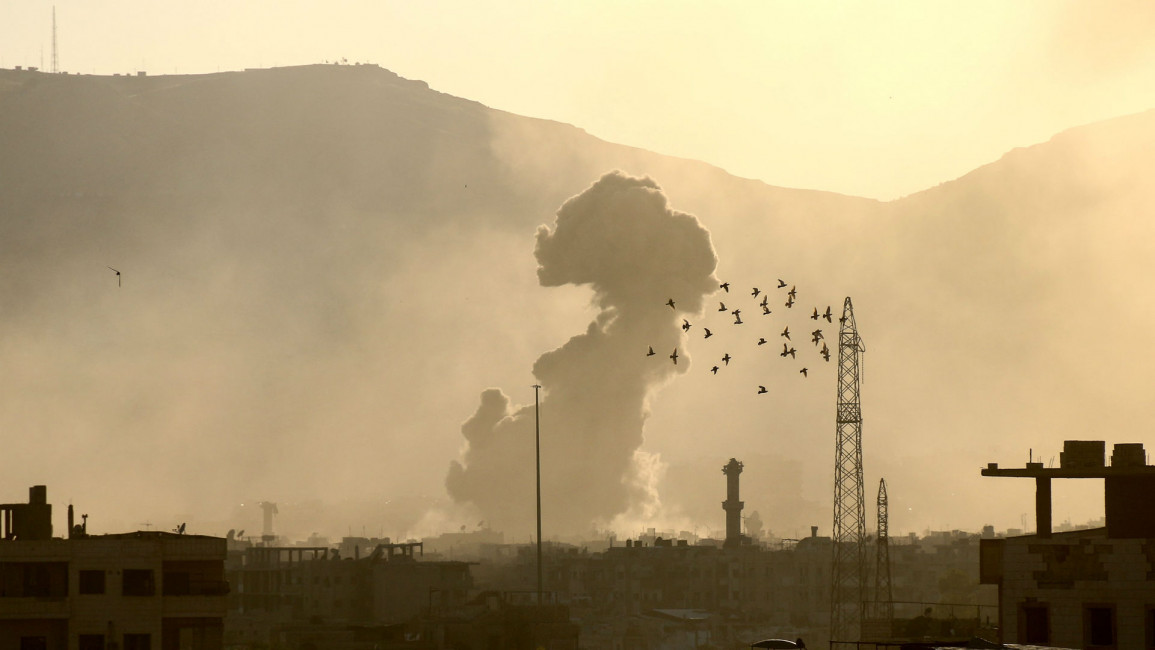Syrian regime targets Damascus suburb in 'heaviest bombing' since July truce
The Syrian regime has targeted the Damascus suburb of Eastern Ghouta over the past 72 hours with the heaviest bombing since a July truce came into effect.
The Damascus suburb has been battered by seven years of fighting and is one of the last bastions of rebels fighting President Bashar al-Assad's regime.
Despite a 22 July ceasefire deal as part of the so-called "de-escalation zones" agreed in May, Eastern Ghouta has been rocked over past weeks with deadly regime airstrikes.
On Saturday, the Syrian regime army launched dozens of rockets, shells, and airstrikes on the rebel-held areas of Ain Tarma and Eastern Ghouta, the Syrian Observatory for Human Rights said.
Videos uploaded on social media purported to show the regime attacks, Reuters reported.
In the preceding 24 hours, more than 70 regime rockets had been fired at Eastern Ghouta, the Observatory said, making it the heaviest two days of bombing on the rebel-held area since the 22 July truce.
At least 25 civilians have been killed since the ceasefire was announced, with Russia deploying military police to enforce the so-called "de-escalation zone".
Russia and Iran, which back Assad, and rebel supporter Turkey agreed in May to establish four zones in the country in a potential breakthrough towards calming a war that has claimed an estimated 400,000 lives since March 2011.
The zones have seen thousands of civilians leave their homes across the country after the Syrian regime recaptured former opposition neighbourhoods.
Syria's conflict evolved from a bloody government crackdown on protests in 2011 into to a devastating war that has drawn in world powers, including Russia and a US-led international coalition.



